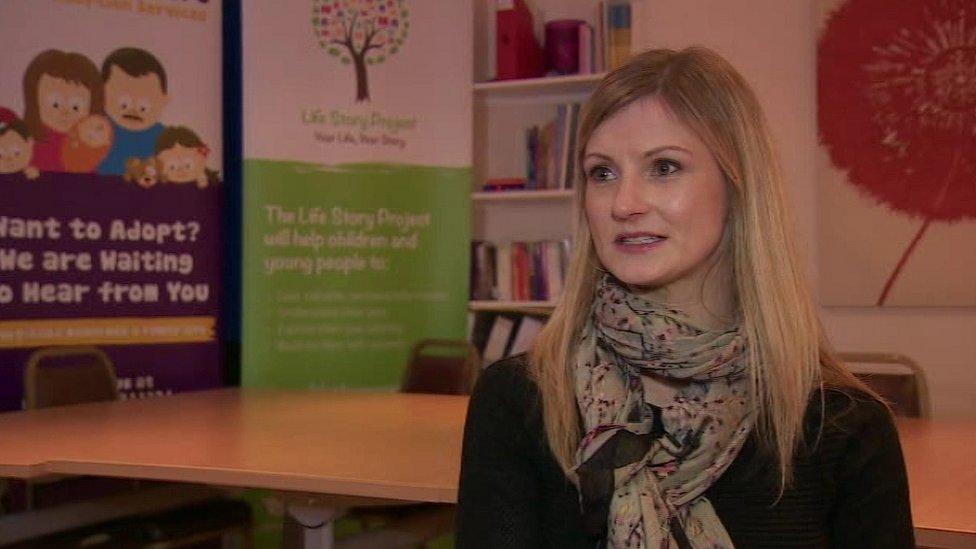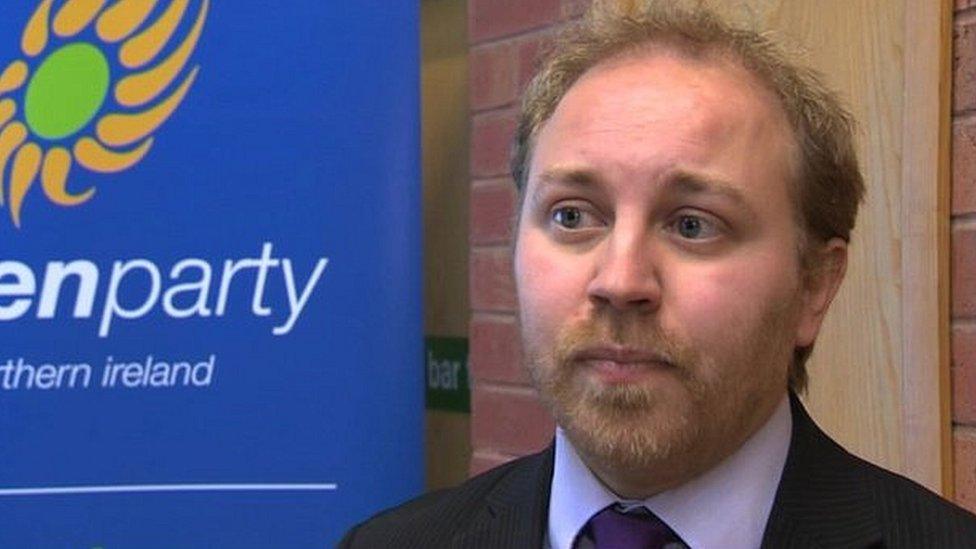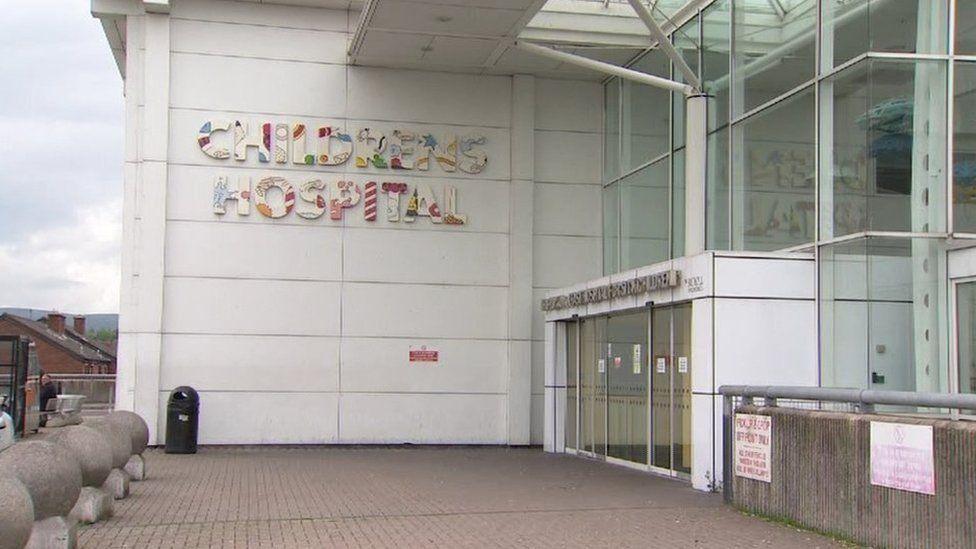'Vital' new law helps to help children in care and with special needs
- Published

Susan Jackson, a social worker, says the new law makes a big difference to children in care
During a rather noisy political year characterised by crisis, a notable piece of legislation quietly made its way through the Stormont assembly.
Amid the din of division, all parties spoke in favour of the bill and put it into law.
The Children's Services Co-Operation Bill was proposed by the Green Party MLA Steven Agnew.
It places a legal duty on government agencies to co-operate when it comes to children's services.
That might sound technical, but professionals in the field have said it will make a vital and very practical difference.
Susan Jackson is a social worker from the Life Story Project and works with children in care.
She used one example to show why the new law matters.
"I was working with a disabled young person," she said.
"The disability required a small adaptation to the home to allow them to return from hospital safely.
"Unfortunately, health and housing were in conflict on whose responsibility it was to provide this service.
"Consequently that child remained in hospital for longer than may have been deemed necessary."
The new law is designed to prevent that kind of bureaucratic problem.
Agencies will be legally required to work together.
This means they can pool financial resources, instead of having to decide who pays for what element of a child's needs.
Ms Jackson spent some years working in England, where a similar law has been in force for more than 10 years.
She said: "It's very important - it allows for savings for the taxpayer and better outcomes for children.
"Services will work around the child."
The champion of the bill, Steven Agnew, said it will be particularly significant for children in care and those with special educational needs.
"The legislation will make services for children effective and efficient, and make sure the resources put into children's services get to children," he said.
"It's about making some of the good practice that happens in government common practice."

Steven Agnew brought the proposed law to Stormont
The North Down MLA guided the legislation through the assembly as a private members' bill, the means by which MLAs who are not ministers can get a law onto the statute books.
Mr Agnew's idea found support from the Office of the First and Deputy First Minister.
They worked through some initial concerns that were expressed in early debates.
In the bill's final stage, junior minister Emma Pengelly said the legislation "highlighted the need for better cooperation in this vital policy area".
She added: "The range of outcomes that we wish to achieve for our children and young people can be realised only if we all work together."
The children's bill has now become the children's act, having been signed into law by the Queen earlier this month.
It is one of a handful of private members' bills to have succeeded at Stormont.
They include the TUV leader Jim Allister's bill to prevent anyone with a serious criminal conviction becoming a ministerial special advisor.
A number of other private members' bills are on the assembly agenda at the moment.
UUP MLA Jo-Anne Dobson is proposing a change in the law on organ donation.
Her party colleague Roy Beggs is behind the scrap metal dealers' bill, aimed at tackling metal theft.
The independent unionist John McCallister has brought forward a bill that would change how the Northern Ireland Assembly and the executive work.
And Alliance Party MLA Judith Cochrane is proposing legislation on alcohol licensing for stadiums.
These will be discussed during what is set to be a very busy few months of legislating before the assembly breaks up for elections in the spring.
- Published9 December 2015

- Published27 November 2015
